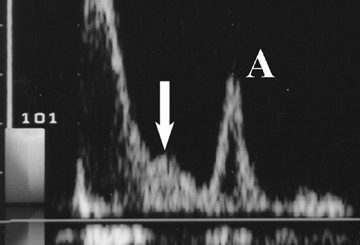Neurology Flash Cards-2
Contents
- 1 Kayser–Fleischer rings and impairment of vision
- 2 Is Kayser–Fleischer rings is specific to Wilson disease ?
- 3 What happens to Kayser–Fleischer rings after treatment?
- 4 Brushfield spots
- 5 What is the pathophysiology of Kayser–Fleischer rings ?
- 6 Lisch nodules
- 7 Dentate ligament
- 8 Kayser–Fleischer (KF) rings
- 9 Krückmann-Wolfflin bodies
- 10 Schirmer's test
- 11 Filum terminale
- 12 Sunflower cataract
Kayser–Fleischer rings and impairment of vision
Kayser–Fleischer rings and impairment of vision
Kayser–Fleischer rings do not cause any impairment of vision
Is Kayser–Fleischer rings is specific to Wilson disease ?
Is Kayser–Fleischer rings is specific to Wilson disease ?
KF rings are not specific to Wilson disease alone, they are also seen in other chronic cholestatic disorders such as primary biliary cholangitis and children with neonatal cholestasis
What happens to Kayser–Fleischer rings after treatment?
What happens to Kayser–Fleischer rings after treatment?
Kayser–Fleischer rings- disappear with treatment and reappear with disease progression.
Brushfield spots
Brushfield spots
Brushfield spots on the iris due to Down’s
syndrome
What is the pathophysiology of Kayser–Fleischer rings ?
How the Kayser–Fleischer rings are formed ?
Kayser–Fleischer rings are dark rings that appear to encircle the iris of the eye. They are due to copper deposition in part of the Descemet's membrane as a result of liver diseases
Lisch nodules
What are 'Lisch nodules ' ?
Lisch nodules- iris hamartomas
pathognomic markers of neurofibromatosis type 1 (NF1)
Rarely seen in individuals without NF1 like segmental neurofibromatosis and Watson syndrome.
Rarely seen in individuals without NF1 like segmental neurofibromatosis and Watson syndrome.
Dentate ligament
What is dentate ligament?
Dentate ligament - dentate ligaments extend along the lateral surface of the spinal cord, between the anterior and posterior
nerve roots, from the pia to the dura mater
Kayser–Fleischer (KF) rings
Kayser–Fleischer (KF) rings are seen in which conditions?
Kayser–Fleischer (KF) rings are a common ophthalmologic finding in patients with Wilson disease
Krückmann-Wolfflin bodies
Krückmann-Wolfflin bodies
Krückmann-Wolfflin bodies
Similar spots seen in iris like Brushfield spots Found in individuals without Down syndrome.
Krückmann-Wolfflin bodies- these spots typically are less well defined, fewer in number and more peripherally located than the Brushfield spots of trisomy 21.
Similar spots seen in iris like Brushfield spots Found in individuals without Down syndrome.
Krückmann-Wolfflin bodies- these spots typically are less well defined, fewer in number and more peripherally located than the Brushfield spots of trisomy 21.
Schirmer's test
What is Schirmer's test ?
Schirmer's test -Record measurement of tear secretion in patients with suspected 'dry eyes'.
Filum terminale
Filum terminale is about ----------- cm in length
Filum terminale is about 20 cm in length
Sunflower cataract
Sunflower cataract
Ocular signs of Wilson disease
Sunflower cataract and KF rings.
Sunflower cataract and KF rings.
Share:





